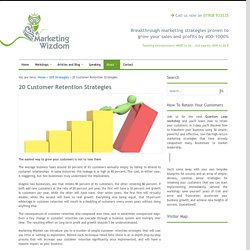

Marketing Proposition. Social media. 1 Introduction 1.1 Who should read this practice note?

All practitioners and practices interested in using, or currently using social media. This practice note may be particularly interesting to compliance officers and marketing professionals. 1.2 What is the issue? Social media is an increasingly popular and growing area. The growth of the use of social media by clients may result in a corresponding expectation that the legal profession should also embrace it as part of its working practices. Social media can offer many professional and personal benefits: commercial benefits arise from the ability to market products and materials as well as to communicate with a wide and/or targeted audience. Social media activity is beneficial for engaging with clients and other professionals, for example through direct and immediate feedback from those who have used legal services, and can be used to allow greater access to legal information and resources.
Data Collection Methods. Ten ways to approach new customers. Advertise somewhere new.

Research publications that would appeal to your target market. Start with your local press and then consider regional and trade publications. Look for free sources of advertising, such as local authority magazines and community websites that list small businesses.Use empty display spaces. Put up eye-catching promotional messages to make the most of your shop window or the sides of your vehicles.
If you are renting the premises or leasing the vehicle, check you are allowed to put up signs.Encourage word-of-mouth recommendations. Competitor Analysis. The role of competitor analysis. Why bother to analyse competitors?

Some businesses think it is best to get on with their own plans and ignore the competition. Others become obsessed with tracking the actions of competitors (often using underhand or illegal methods). Many businesses are happy simply to track the competition, copying their moves and reacting to changes. Competitor analysis has several important roles in strategic planning: 20 Customer Retention Strategies. The easiest way to grow your customers is not to lose them The average business loses around 20 percent of its customers annually simply by failing to attend to customer relationships.

In some industries this leakage is as high as 80 percent. The cost, in either case, is staggering, but few businesses truly understand the implications. Imagine two businesses, one that retains 90 percent of its customers, the other retaining 80 percent. If both add new customers at the rate of 20 percent per year, the first will have a 10 percent net growth in customers per year, while the other will have none.
The consequences of customer retention also compound over time, and in sometimes unexpected ways. Marketing Wizdom can introduce you to a number of simple customer retention strstegies that will cost you little or nothing to implement. 1. Virtually every business loses some customers, but few ever measure or recognise how many of their customers become inactive. The Importance of Understanding Your Target Market. Why is it important to define a target market for your business? Find answers from Entrepreneur.com experts.
One of the first things I always ask anyone starting a new business is, "Who or what is your perfect customer or client?

" If they can't answer that I have them go figure it out before we go any further. In marketing if you have no target it's not like the motivational speech of "Shoot for the moon if you miss, you'll land among the stars. " It just doesn't work that way in business. You'll be shooting into the black expanses of space--where no one exists. The 5 Essentials for Aligning Your Budget With Your Business Strategy. Join Entrepreneur and today's most influential business innovators in Denver, May 4.

Register Now » In order to enable your business to function smoothly and do better, it is not only important that your budget mirrors its strategic goals, but you also need to have specific guidelines with regard to the steps to achieving those goals. In today’s dog-eat-dog world, businesses need to be capable of managing their financial resources to be able to deal with unforeseen challenges. A disconnect between the budget and business strategy can result in lackluster budgeting and poor strategy implementation, which could spell doom for a business. It is only when the budget is brought in line with the business strategy that you know their impact on each other, and where to most effectively allocate spending and investments. Here’s how you can align the two properly. Why do I need a marketing plan? Marketing planning helps you develop products and services in your business that meet the needs of your target market.

Good marketing helps your customers understand why your product or service is better than, or different from, the competition. A good marketing plan can help you reach your target audience, boost your customer base, and ultimately, increase your bottom line. It's often required when seeking funding and helps you set clear, realistic and measurable objectives for your business. Developing a marketing plan requires research, time and commitment, but is a very valuable process that can greatly contribute to your business success. Marketing is for all business - big or small Without customers, your business would not survive. Many smaller businesses don't place enough importance on marketing. Planning Cycle Steps Image.